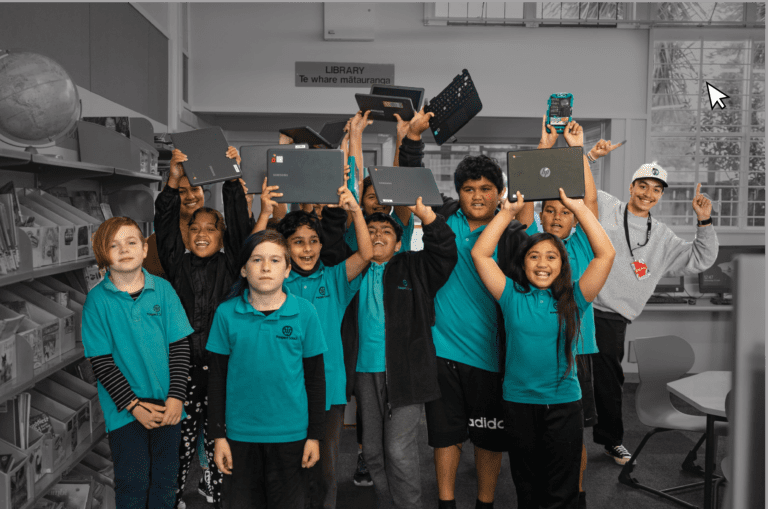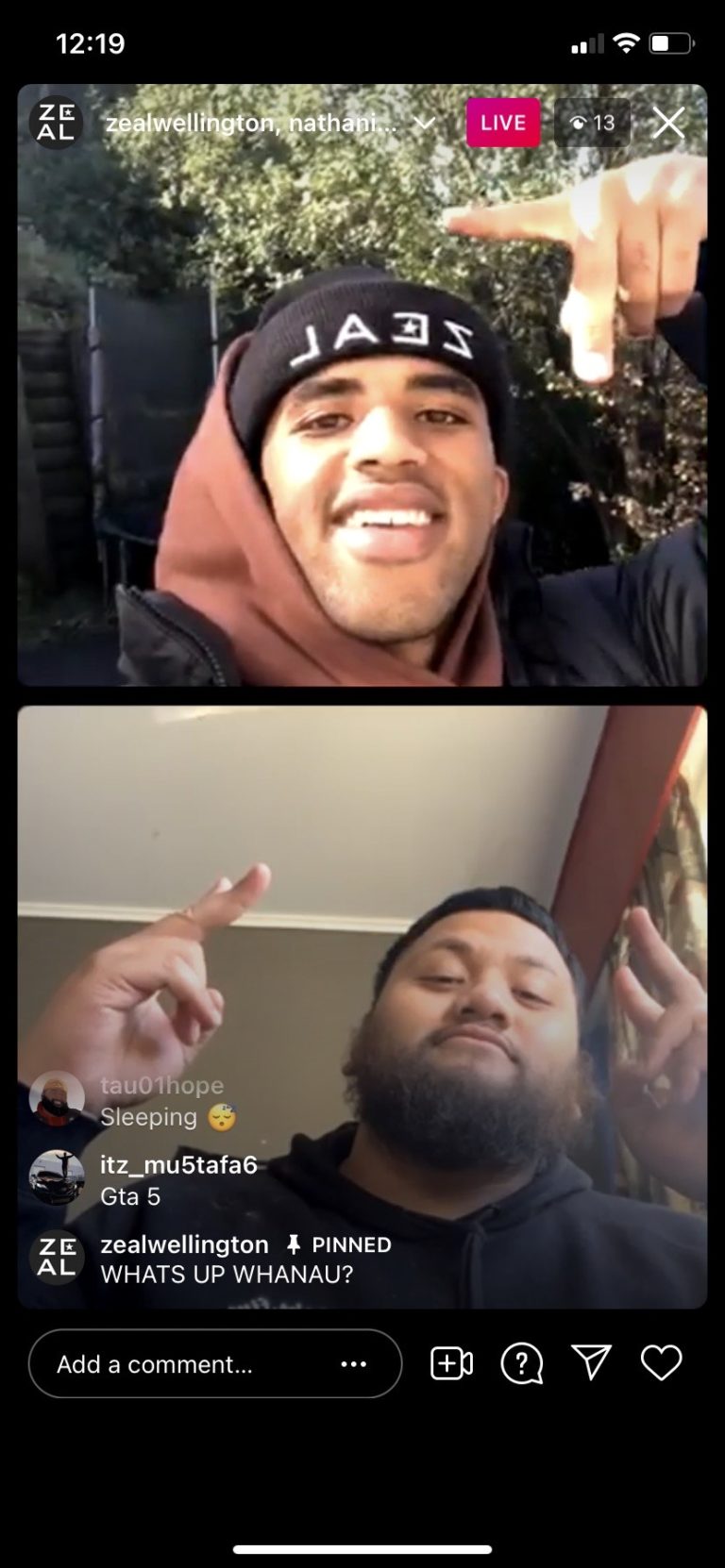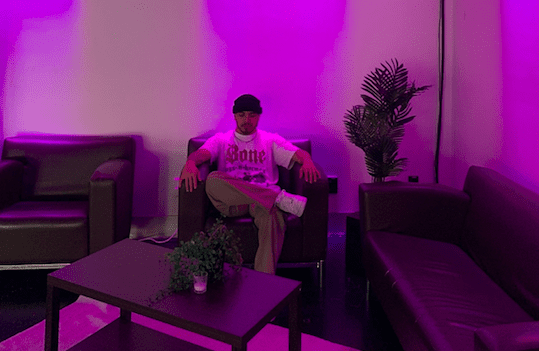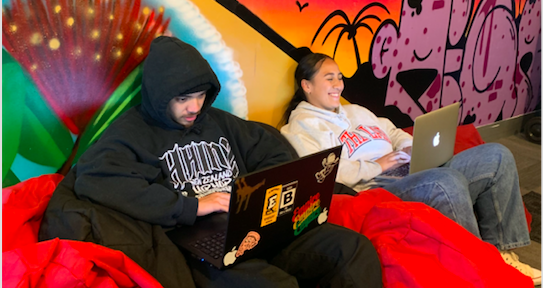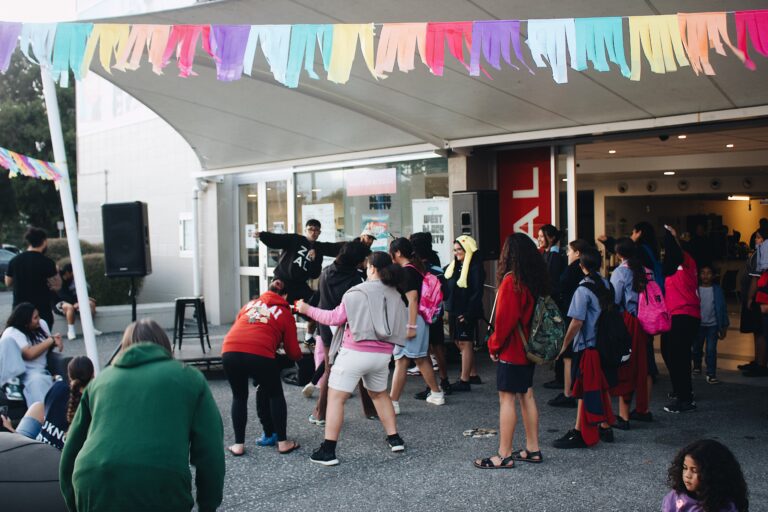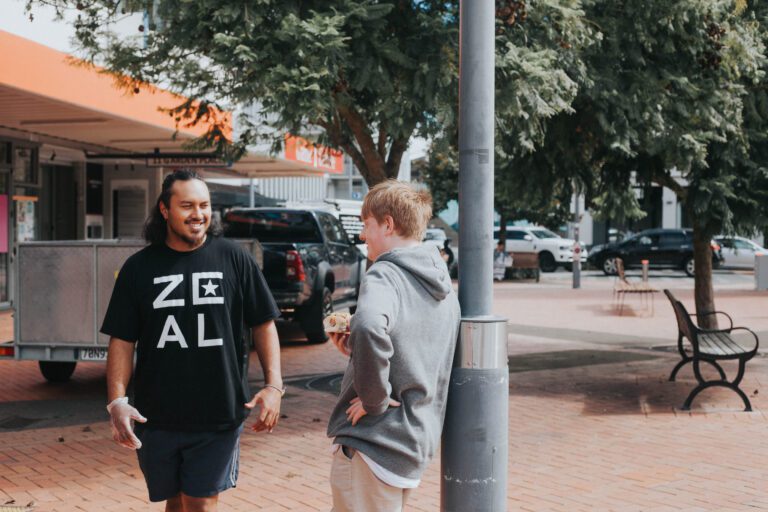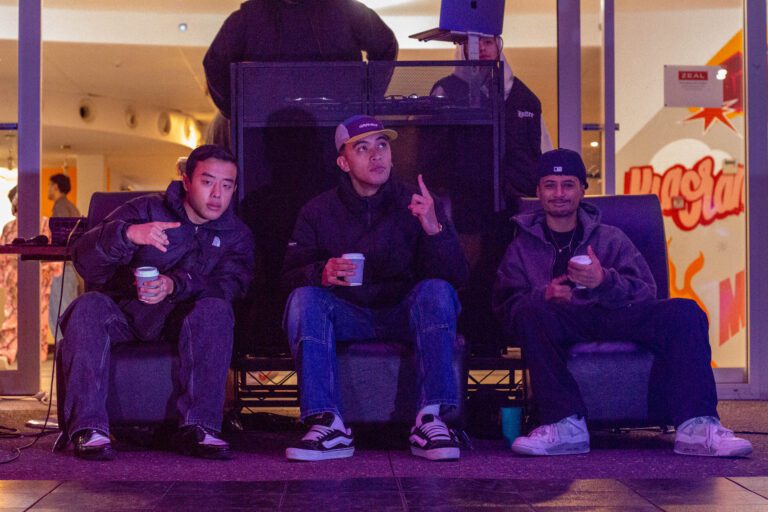Are you keen to get started with moving your youth work online, or perhaps just interested in how Zeal has been adapting our work to meet young people where they are?
We’ve put together some things we learnt as an organisation since broadening our youth work to online, which we hope you’ll find interesting and useful. We found the things we learnt made us better communicators generally, not just in our youth work, so you may find some ‘lightbulb moments’ in the tips below for your day-to-day.
We’ve also packaged up some insights directly from young people at Zeal about coping through lockdowns. Massive shout out to you all for speaking out and sharing your experiences!
Content warning: self harm mentioned
Our journey to here
Zeal has been supporting young people through online spaces like our Online Crisis Intervention mahi for a few years now, but when a worldwide pandemic hit in late 2019, as a whole organisation of youth workers and as a community, we collectively had to innovate and adapt to bring our mission completely online.
Zooms, Lives, DMs, Phone calls, Online Classrooms, Competitions and general tech support all became part of our toolkit for creating spaces for young people to hang, meet new people, learn skills and overcome the tough stuff.
You can check out our socials to get a vibe of what we’ve been up to.
Before being online we would do things like school tours, youth work on the street, free BBQs at the skate park, youth events etc, however after going online and coming out of lockdown, a normal day for us would see 60 - 80 young people through our doors every day. That proved to us how important it is to provide meaningful online interactions for young people."
Hayley Rosser, Online Community Supervisor at Zeal
What we learnt from young people
We surveyed 163 rangatahi in October 2021 to learn about their experiences, what they value about Zeal, how we could improve and navigating challenges. Here’s what we learned about the mental health impacts of lockdowns and isolation. Massive thank you fam for your whakaaro!
65% of young people said their mental health has been affected by lockdowns
Isolation, challenging home dynamics and feelings of disconnection were the most common influences on young
people’s mental health.
65% of young people experiencing mental health impacts are still experiencing them

49%
of those still being affected were under alert level 3 at the time of being surveyed

87%
of those surveyed under alert level 3 said they were still experiencing mental health impacts

53%
of those surveyed under alert level 2 still had ongoing mental health effects from lockdowns
What young people said they want more of in future lockdowns / isolation
Young people we surveyed wanted Zeal to continue our lockdown mahi connecting via Zoom hangs, DMs, food parcels and to increase the number of online events. Shot fams for your whakaaro!
Other support suggestions from rangatahi
- Inspirational quotes
- Challenges and comps
- Help with study
- Interviewing young people
- Anime posters
- Interactive IG stories
- Calls
- Help with wifi
- Laptops
- Creating playlists
- Video content
- Clothes
During the first lockdown in 2020, one of my friends invited me to join the wahine calls on Zoom. I was a bit shy at first since I wasn't a big fan of online calling. Once I joined the call everyone was so nice and welcoming! It made me feel like I finally found good people to talk to and hang out with. I was eager to meet the youth workers that made lockdown fun and entertaining for me. They made me realize that meeting new people isn't as bad as I thought it was. It's been 2 years, I've attended afternoon hangs, events, and even been behind the bbq helping out at a few Zeal sausage sizzles. I'm more comfortable making new friends and meeting new people now.
Tatiana, 15
Our top 11 tips for planning your online youth work practice
1. Zoom fatigue is real
During lockdown young people can be spending up to 5-6 hours in front of a screen, online or on camera during digital class. Once school hours are finished, young people can feel fatigue or be outright exhausted.
As youth workers we are asked to understand Te Ao, the bigger picture of the worlds rangatahi are in and what is being asked of them. Learning to balance fun, engagement, and challenges for young people as well as chill spaces where they can recharge is hard but important for their belonging in our online spaces.
2. Be mindful of home safety and surroundings
Family members in the same room, disconnections or broken internet, and feeling shame or fear of judgement in our surroundings are challenges many of us have online. Young people often find safety in physical youth centres as they’re outside other aspects of life. Others can’t listen into conversations and the judgement of the way someones bedroom looks doesn’t exist.
It is important before entering heavy conversations to ask who might be in the same room. You can do this by asking or writing in the chat box and include without going into revealing words what the discussion topic may be about.
3. Internet access and devices
Not all young people have strong internet access, or access to any internet or devices at all. This can leave young people feeling forgotten and alone, frustrated and bored.
Reduce barriers for slow connections by staying patient and becoming creative. Things like turning off cameras while over zoom can help with connection. You could also move conversations to txt to make them more accessible. It’s hard not to recognise the effort and aroha that goes into a letter or gift in the mail!
If you believe like we do that every young person deserves to have the tools to thrive online on their own terms, see how you can help through our new laptop recycling programme!
4. Body language is difficult to read online
Often we may tap our legs when in stress, clench our fists, or even show self harm marks, these are all insight into how we’re feeling that you might not see via a screen.
Online you need to ask the right questions, and listen into tone of voice more – “Do you notice yourself tapping your leg” or ” are you feeling relaxed at the moment?”. Its good to be aware that some young people might not want to tell you the seriousness of how they’re feeling, so to explain to them why you’re asking is important.
It’s also super important you use what visibility people do have of you to express yourself. If you’re doing video chats, an Instagram or TikTok Live, use your face and your hands to connect as a human with your audience. Eye contact with the camera is massive if you’re going to stay authentic and help people to connect with you.
5. Txting vs. facetime
Young people may prefer txting rather than Video conferencing platforms as they don’t want to share their face over camera. This may pose a challenge as messages back and forth can be easily misinterpreted. It’s easy to misread one word answers, spelling errors, slang or emojis and make assumptions.
Encouraging young people to move online can help as long as you explain to them what it might look like, e.g. “Hey, I’m finding it hard to txt and I’d love to know more about your day, would you feel okay if we facetime? We don’t have to use the camera and it might only take 5-10mins”. Giving them clear communication and timeframes will help them to feel more comfortable.
6. Zoom isn’t everything
Google Meet for the win! Nah jokes one of the best ways youth workers can connect with young people in youth centres is playing games and chatting in between, this can build rapport. In-person you’ve got loads of options, however online forces us to be more creative.
There are a ton of epic online games, It could be as simple as card games online or as interactive as fortnight. Remember that young people want to spend time with you, so you can decide how hectic the gaming is – it doesn’t need to be a downloadable game, it could be moving ABL games online.
7. Limits to phone and computer time
Parents, caregivers and young people themselves may choose to limit their internet and device use. As we respect these choices it does bring challenges with staying in sync and not interrupting school work.
Checking in with young people might run over days, but staying patient and consistent in their lives is important. Letting them know that they can pick up conversations at any time that suits them on their terms, however its important to balance that with being clear on when you’ll be able to message back. Let them know when you’re online and offline so they can understand and expect replies. You can read more about boundaries in part 11
8. Meet young people where they are
Connecting and building relationships with young people online during lockdown or iso allows you to create places of belonging in their current world. You can understand a little bit more about what is going on for rangatahi and meet them where they are rather than waiting for them to visit you in physical spaces. This gives you a massive insight into their surroundings and people who you might not get to meet or know of.
It’s important to break down barriers. Expecting someone to go through complicated sign-ups on a platform they never use, whilst also meeting new people is a pretty steep ask. If you’re not sure how to make this easy, just ask the young people you’re connecting with!
9. View your online spaces as a virtual youth centre
Online allows you to easily access one to one spaces that our centres might not. Often the lack of quiet space and the business within the centres can make it challenging to connect with young people. Here you can take the chance to talk about the gritty things in life. Dedicated uninterrupted time is vital and young people can access the deserved attention.
Simulating a ‘drop-in’ centre is easier than you’d think. You just need to make the ‘front-door’ easy, interactive and easy to find. One example might be just simply having a Q&A in your Instagram story asking ‘how we doing today?’. You never know who might’ve needed just this little, tap of a button opportunity to connect with someone about the tough stuff.
Online hangs where young people who might not be able to access a youth centre easily can make new relationships with other young people and youth workers who they might have else missed.




10. Making new young people feel welcome
Have you ever checked a menu online before booking a restaurant? It’s in our nature to ‘check it out’ before we enter unfamiliar spaces and young people are just like you!
When young people can see youth workers’ faces and personalities online they can find connection with you even before they connect in person. This means staying authentically you. Knowing what to expect will help young people who might be experiencing nerves. You can help them by posting photos, videos or lives of either yourself or something your team has been up to.
Also, be mindful that some of us take a bit of time to feel comfortable and safe online. If someone’s not up to sharing their video on your Zoom class or online hangs, hit them up privately before the call to see what they’re comfortable with and avoid pushing too much in front of the whole group. Zoom also has a private messaging feature you can use to welcome newcomers and ask what they need while the groups chatting via video.
11. Big benefits for staff and self care.
Similar to young people, staff can benefit from working online as we can conveniently connect with each other more. Lockdowns have given us time to work on better comms with others and to check in on how each other are doing.
Self-care is a word even us youth workers often forget applies to us too. Whether we’re in lockdowns, getting Covid ourselves, or emerging out of lockdowns and back into centres, its important to take a much needed moment for yourselves. The more we look after ourselves and take time early on to recover and rest, the better our mahi will be. So don’t feel guilty, put down your phone, don’t reply unless it’s an emergency, kick your feet up, read a good book. Letting young people know when they can expect a reply and when you’re offline will benefit the both of you.
So many of the above tips don’t just apply to Youth Work. Perhaps your role is supporting customers with a product, or collaborating with large teams. We hope the above tips have been useful and insightful for all!
Online youth work isn't meant to be scary. You don't have to be 'down with the latest TikTok trends' or be a gamer to be able to do online youth work well. As long as you have a passion for young people's wellbeing. can open Instagram private messaging and use an emoji or two, then the rest is history really. Stay authentically you and give it a go!"
Hayley Rosser, Online Community Supervisor at Zeal
More stuff like this
Did you get some good value from this article? Let us know!
Here’s some more stuff to think about in the online youth work space!
A special thanks
To Tessa Tangaere, Daniel Haurua-Clubb, Janelle Collins, Hadleigh Pouesi, Hayley Rosser, Chris Winder, Aaliyah Turner from Zeal for helping to put this piece together.
And a massive thank you to our Partner Te Rourou Vodafone Foundation Aotearoa for your years of support. Without you we never could have grown so much in the online youth work space and we are so grateful!
